Parsonage Handmade Soap: A Traditional Recipe Masterfully Made with a Modern Twist
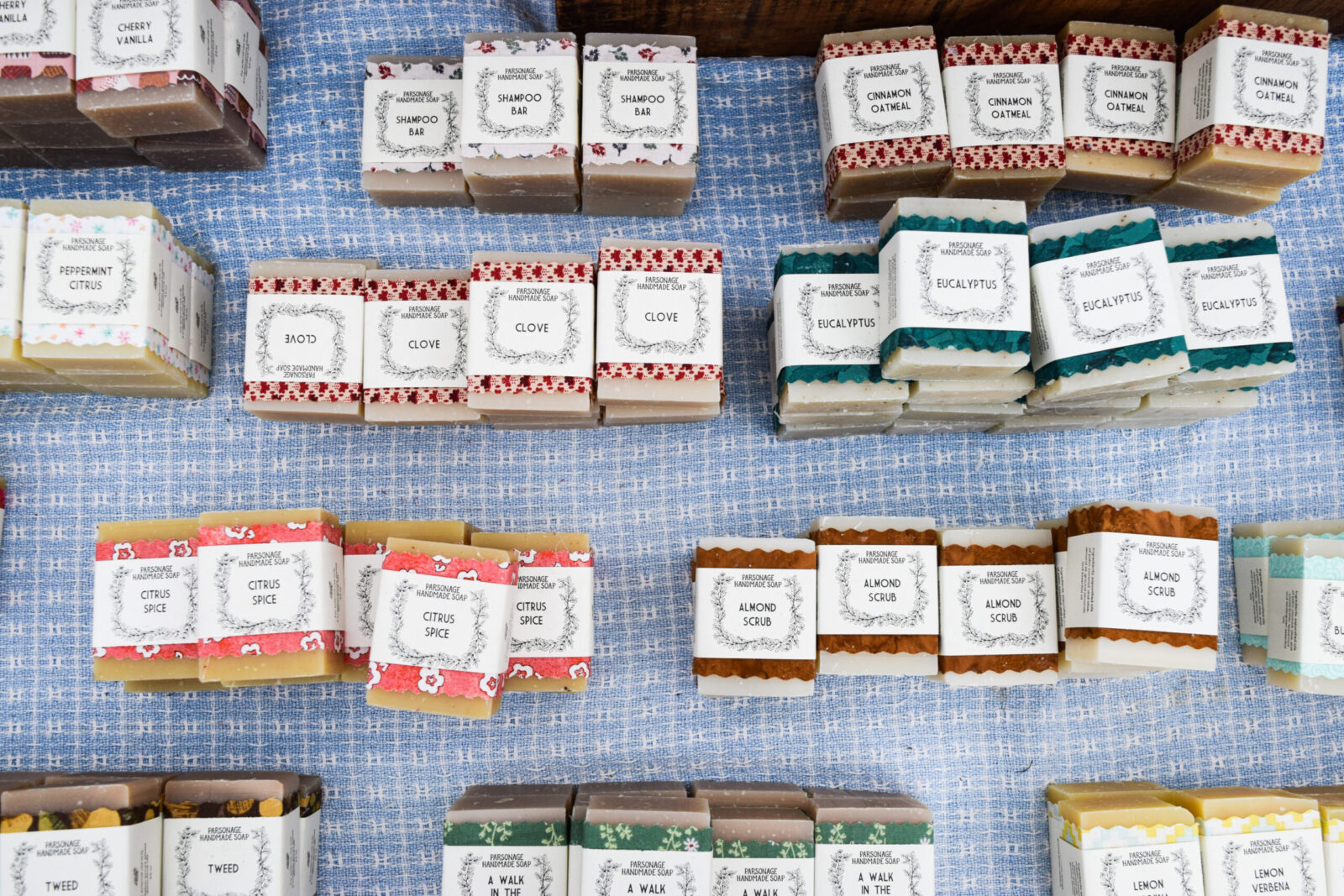
Written by Diane Helentjaris | Photos by Kaitlin Hill
Like many, Dick Darr didn’t stick with his freshman college major, chemistry. He swerved and ended up with a degree in biology. But life has a way of weaving those loose ends of early interests and captivations into an unanticipated tapestry.
“It’s been a fun trip. I thought I was going to be in the corporate world, then the government,” Darr says, “but working for yourself is a great gig.” That winding path brought him to a unique destination. He is now a professional soap maker, and the face of Parsonage Handmade Soap.
What began as a homemade Christmas gift project morphed into a business venture in the early ‘90s. Darr enjoyed making the bars of soap and had some left over. He also shared a passion for gardening and handcrafted items with neighbor Julie Pieper. As an accountant, Pieper had business skills. Darr understood chemistry and biology. The two joined forces and, in 1997, began Parsonage Handmade Soap. Pieper has since moved on, but their initial effort continues with Darr.
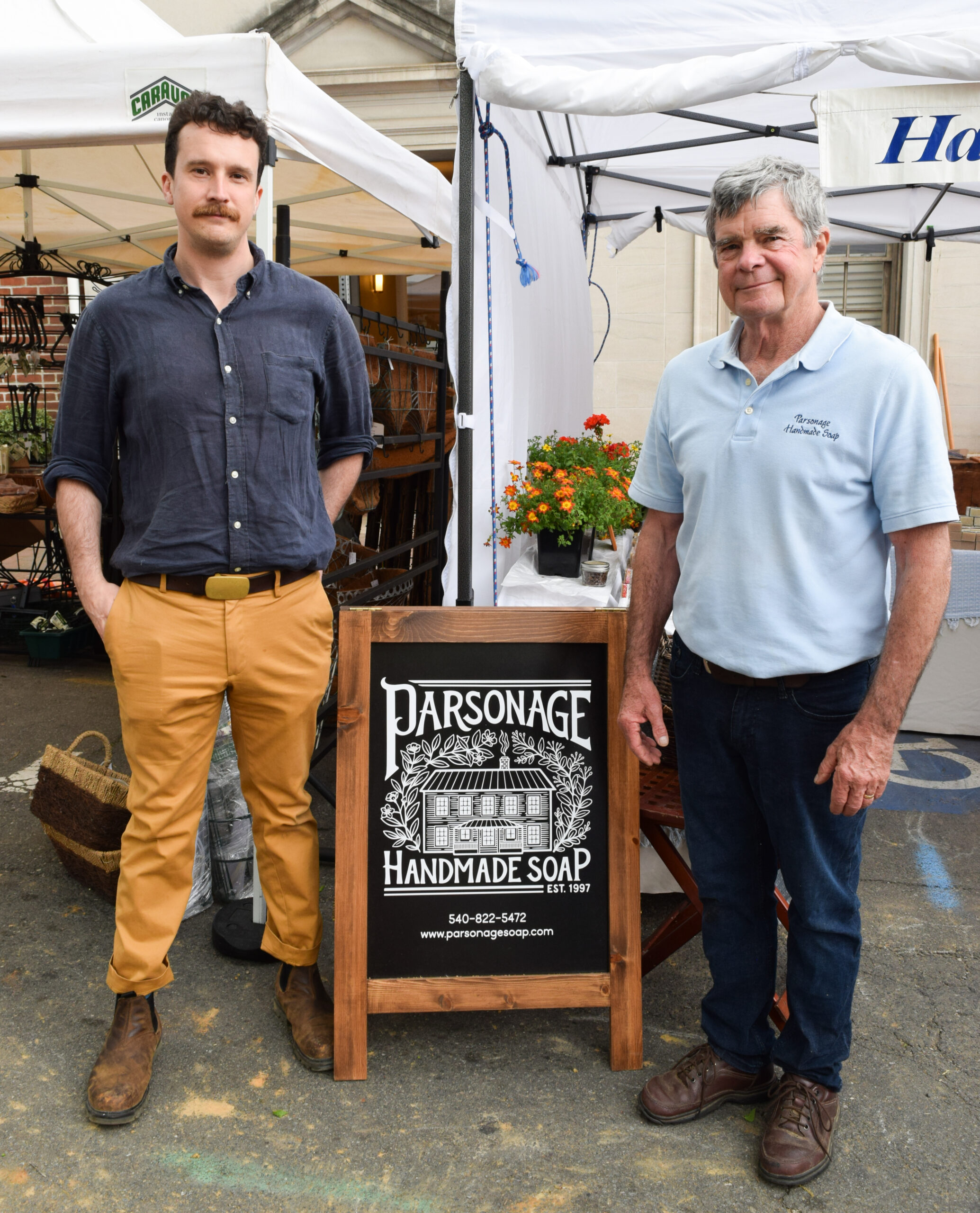
Life as a soapmaster proved to be family-friendly, and a family tradition. Darr is a third-generation soap maker. In addition to farming, his grandparents, originally from Ohio, also made their own soap. The craft allowed Darr to be available to his children when they were still at home, and, though his children are now grown, still offers a flexible schedule and autonomy that he enjoys. It has worked well in conjunction with his wife’s career in education.
Making soap is an ancient practice. How old is unknowable, but a Sumerian clay tablet from 2500 B.C. describes it. The basic recipe never changes: a fat plus an alkali. Combining the two creates a substance with the power to separate dirt and grime away from surfaces like human skin. For instance, throwing a handful of cold campfire ashes into an iron skillet dirtied by bacon grease, adding water, and swishing it around makes a primitive soap for campers. And cleans the skillet.
Log cabin pioneers made their soap from animal fat — leftover cooking grease or fat rendered from butchered livestock and game. For alkali, they seeped old wood ash in water, which made lye.
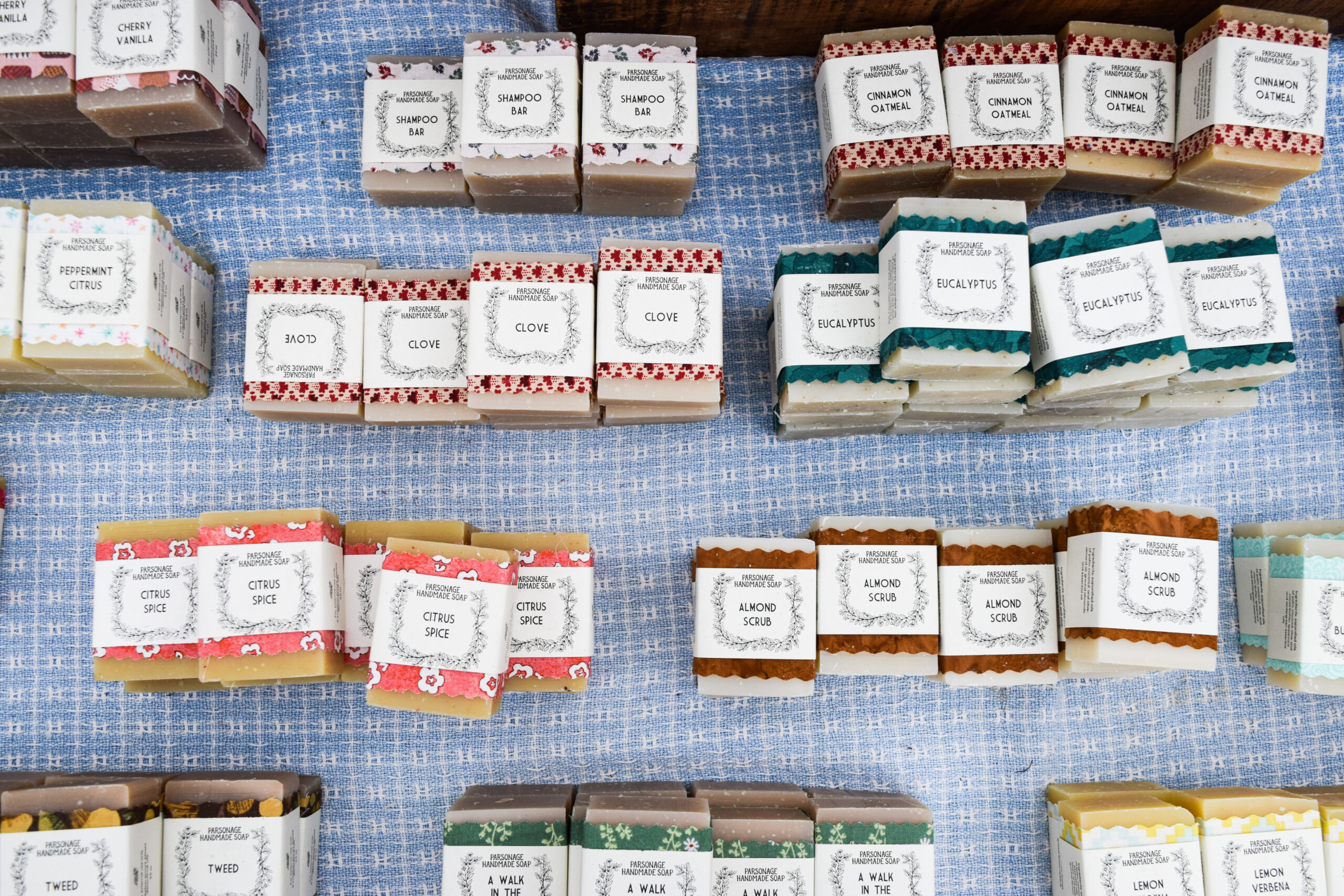
Parsonage Handmade Soap calls back to this historic American heritage. It’s easy to find a photo of Dick Darr in a wide-brimmed William Penn-ish hat, Colonial knee pants, and white hose. Each bar of Parsonage soap is hand cut, hand wrapped in a quaint cotton print fabric, and labeled with a final strip of recycled paper.
They may look from a bygone era, but these soaps have been updated to suit modern tastes. Using his own original recipes, Darr has replaced old-fashioned animal fat with vegetable oils. Soaps and other aromatic products are scented with essential plant oils or cosmetic grade fragrances. He is selective in his ingredients. All vegetable oils are non-GMO certified. The palm oil is RSPO sustainable. Fragrances are phthalate-free.
Among other products is an answer to a common problem: how to enjoy the final slivers of a great soap. The exfoliating soap pouch sold by Parsonage can be filled with these remnants to complete their life cycle as a scrub.
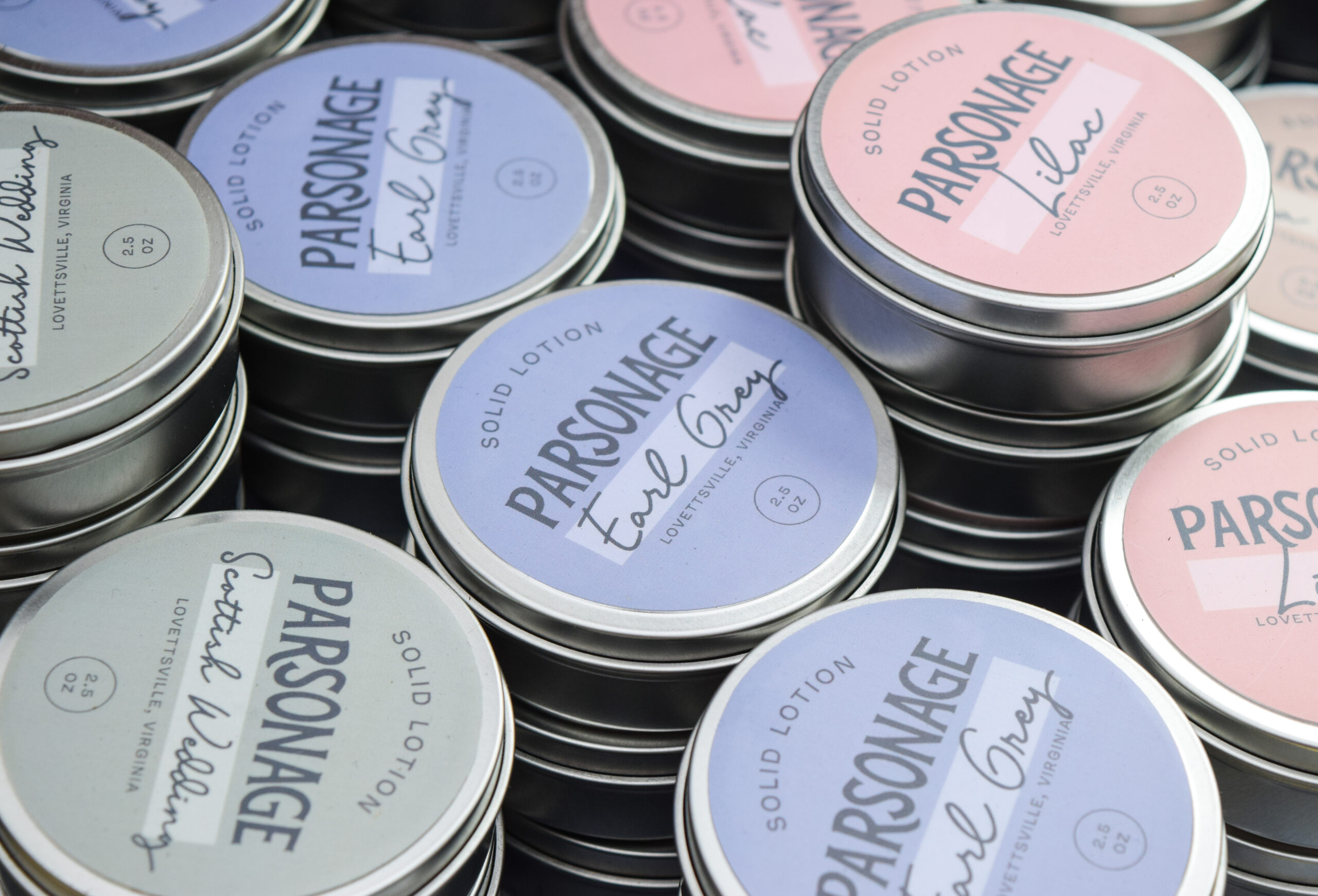
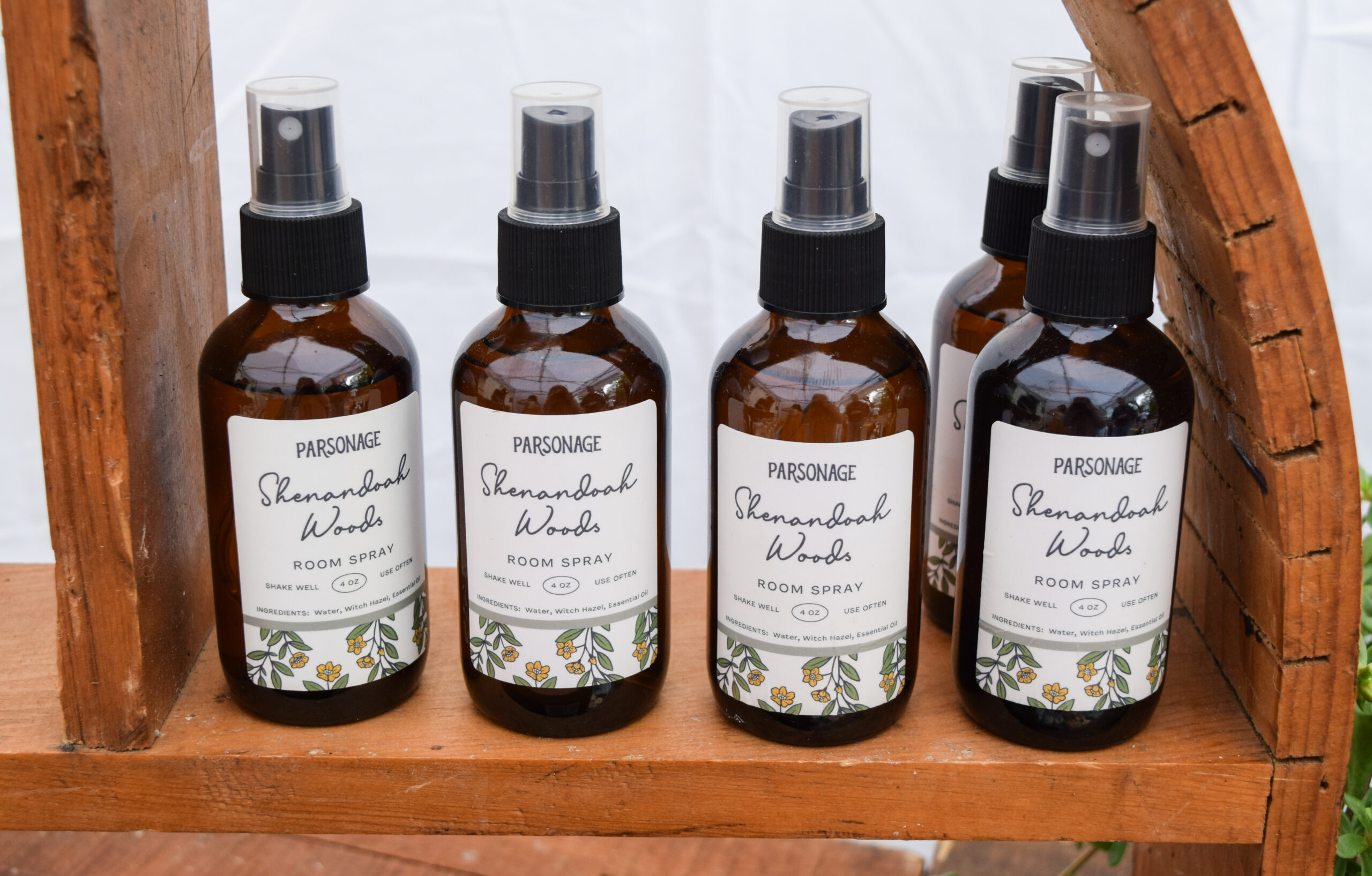
Parsonage also manufactures, as a special order for Dogfish Head Brewery, Dogfish Head Shampoo Bars. Although created for humans, according to Dogfish’s website, “the special conditioners in this shampoo make it [a] hit on the professional dog grooming circuit.”
A member of the Handcrafted Soap and Cosmetic Guild, Darr devotes serious time to finding the best fragrances. Soothing lavender is by far the most popular scent, followed by spicy cinnamon and piquant citrus. Pungent patchouli, which became popular in the ‘60s and ‘70s, still has a dedicated fanbase. “People either love it or hate it,” Darr jokes.
Each year, Parsonage Handmade Soap releases new fragrance blends, some of them seasonal with names such as “Christmas Memories,” “Waterford Faire,” and “A Walk in the Woods.” Parsonage also offers unscented soaps for those who prefer it.
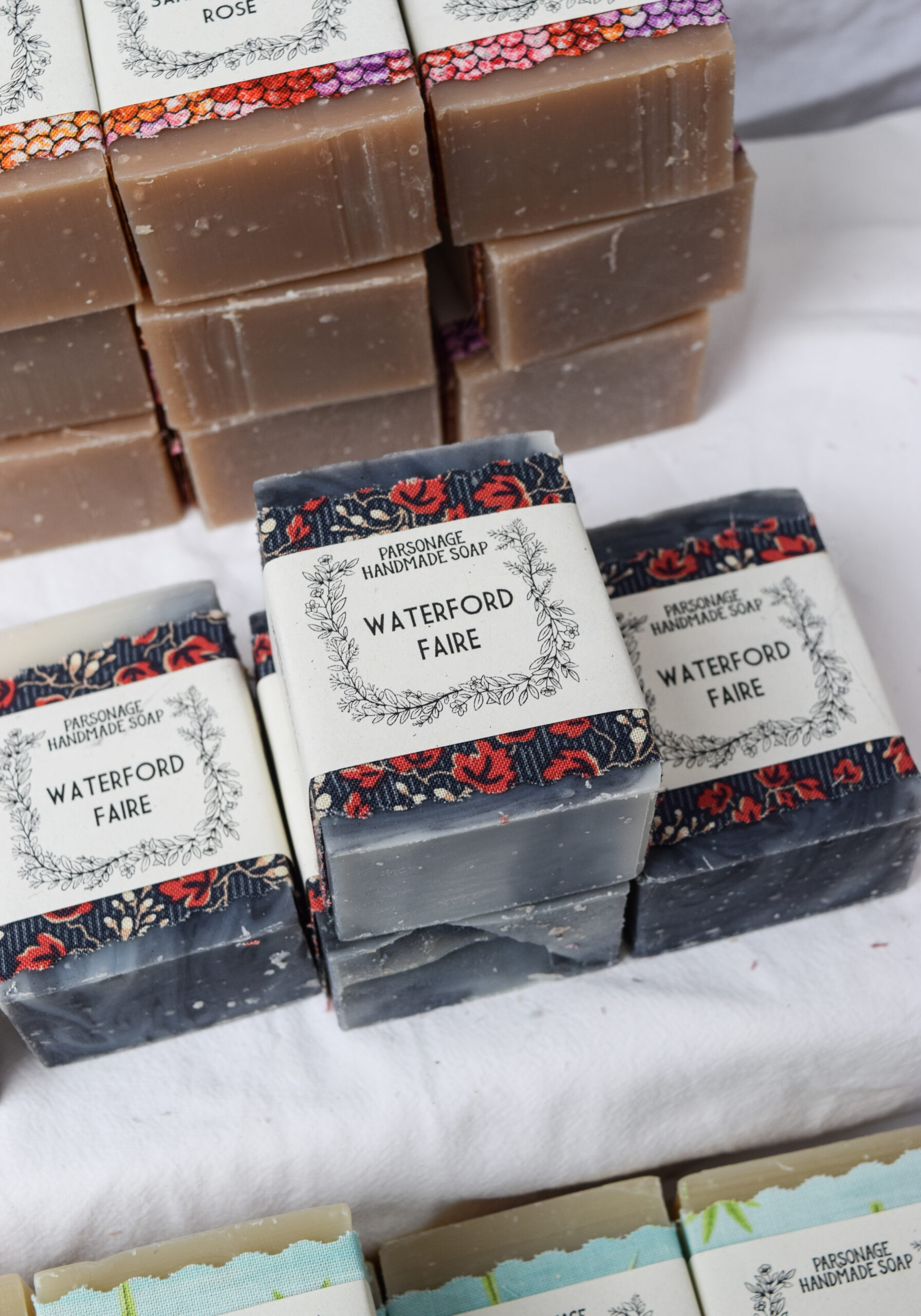
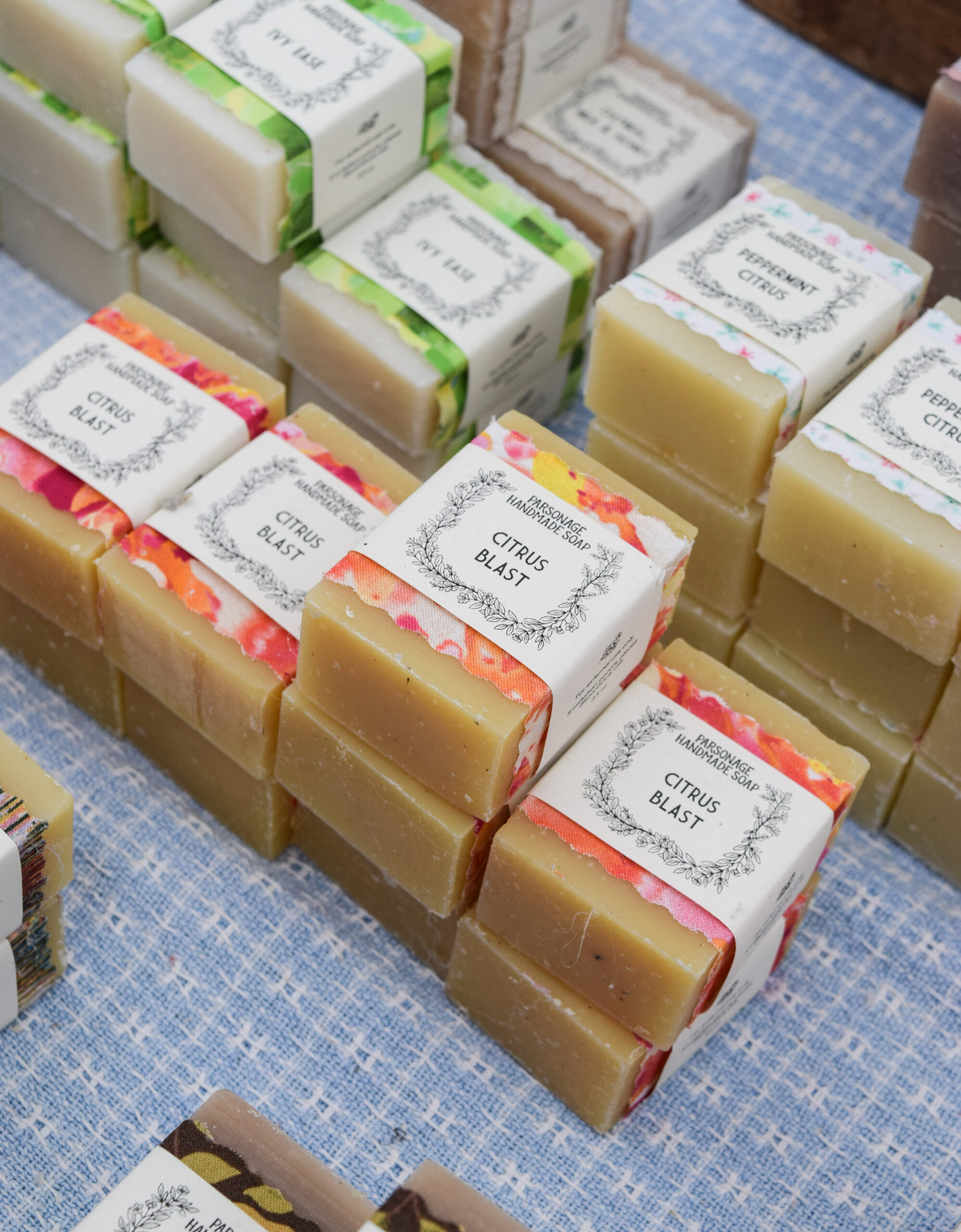
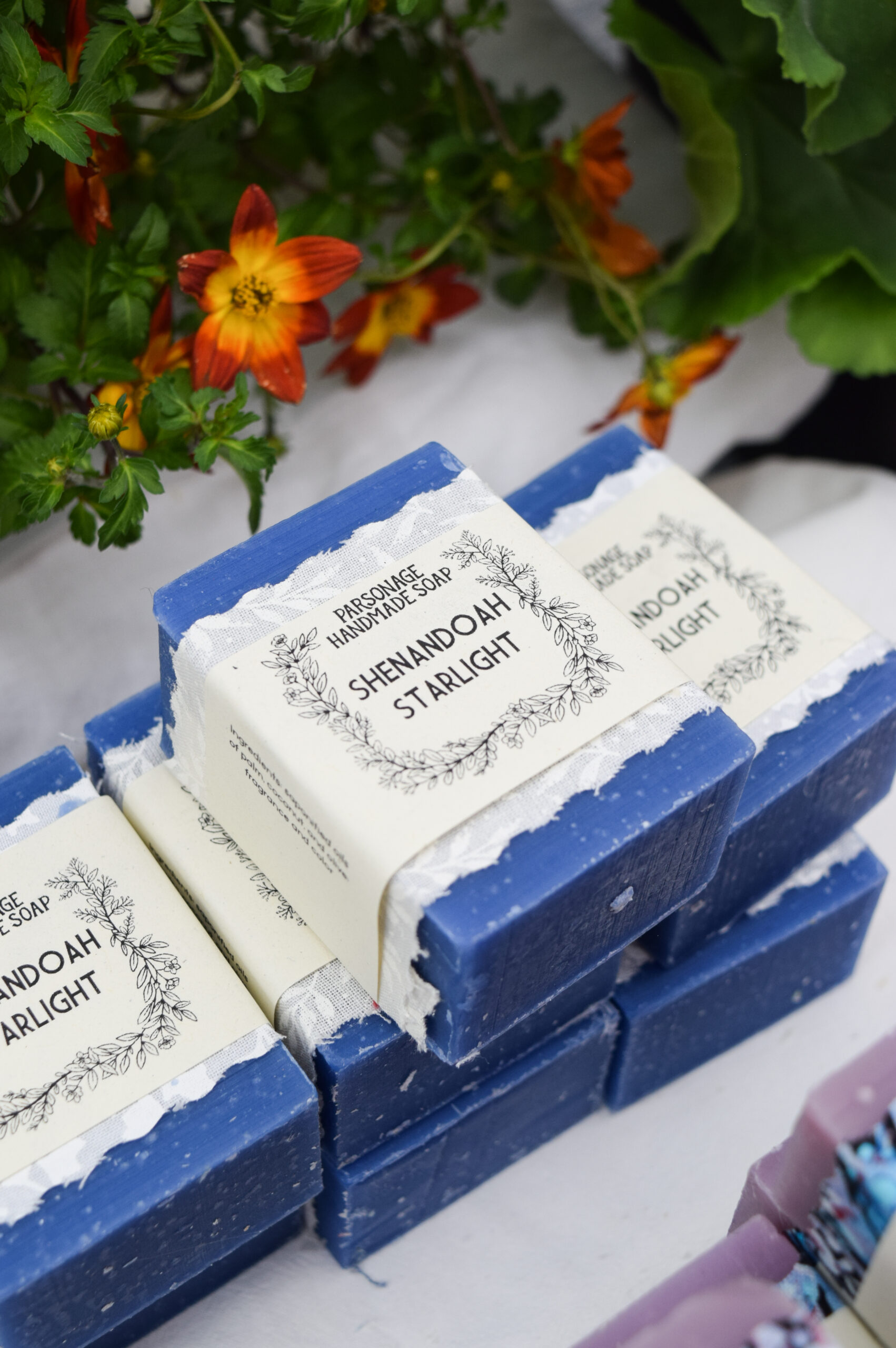
Darr describes the shop as “hyper-local.” Parsonage Handmade Soap goods are sold at regional outlets such as the Loudoun Heritage Farm Museum in Sterling, Trinity House Café and Market in Leesburg, Hamilton Mercantile, and Philomont General Store. The Darr family can also be spotted at events such as the Leesburg Flower & Garden Festival, the Mount Vernon Colonial Market and Fair, and the Waterford Fair. Products can be ordered online from the company’s website.
Darr emphasizes that his soaps are “real soap, something to clean you. [They] won’t hurt you and [they] keep your skin moist. Commercial soaps are often detergent. While they are very, very effective at cleaning, they strip off skin oils. Real soap produces glycerin, which we leave in. It attracts moisture, is a humectant. [We] make a good product. … It does what it’s supposed to.” ML
Parsonage Handmade Soap
P.O. Box 283
Lovettsville, VA 20180
540-822-5472
[email protected]
For more information see parsonagesoap.com.
Published in the May 2023 issue of Middleburg Life.








